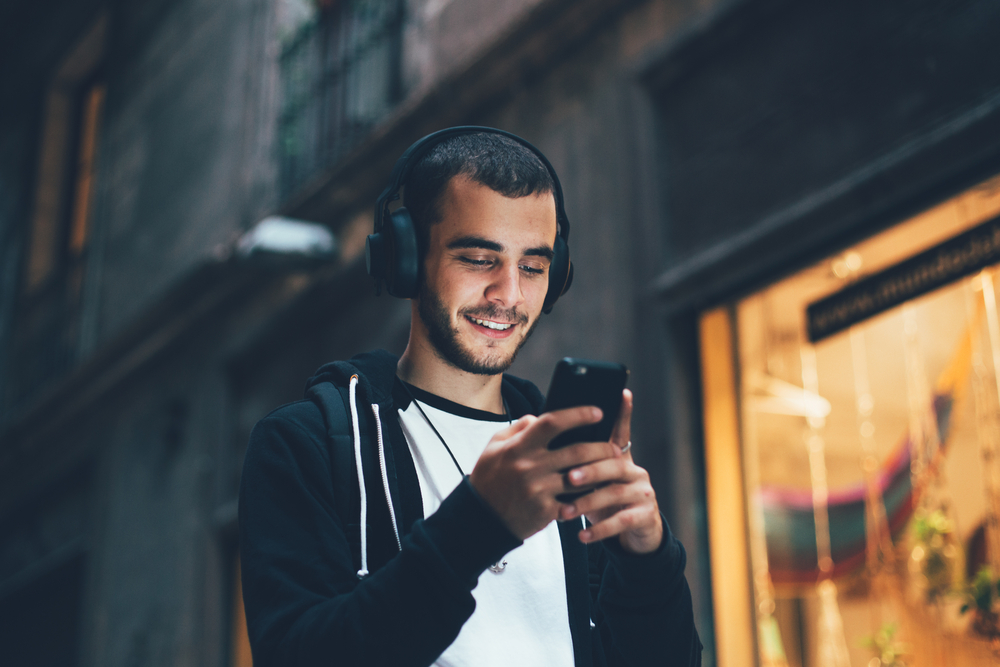
James is a music enthusiast who has excelled in the art of integrating his favored tunes into his day-to-day life, easily transitioning from Spotify at his desk to Pandora on his runs, and meticulously crafting playlists to perfectly complement every activity, whether he’s pumping iron, cooking a meal, or immersed in a gaming session. He’s seldom seen without his headphones, which have become an integral part of his daily life, turning every moment into a personalized audio adventure. James takes comfort and delight in the engaging world of music, but the very source of his joy may be damaging his cherished ability to hear without him recognizing it.
There are safe ways to enjoy music and ways that are more risky to your hearing health. Unfortunately, a lot of us lean towards the second approach.
What is the connection between extended exposure to music and hearing loss?
Prolonged exposure to loud music can result in a decline in your auditory function. We’re used to regarding hearing loss as an issue related to aging, but more and more research reveals that it’s really the build-up of noise-related damage that is the concern here and not anything intrinsic in the aging process.
Younger people are more sensitive to noise-induced harm as their ears are still in the developmental stage. And yet, young adults are more likely to be dismissive of the long-term dangers of high volume. An increasing number of young people are experiencing hearing loss due to frequent use of loud headphones.
Is it possible to enjoy music safely?
Listening to music at full blast without any limits is the most dangerous approach. But there is a safe(er) way to enjoy your music, and it normally includes turning the volume down. The general rules for safe volumes are:
- Adults should limit their device listening time to 40 hours or less and ensure the volume remains under 80 dB.
- For Teens and Minors: You can still listen for 40 hours, but keep the volume level below 75 dB.
Breaking it down, you’re looking at about 5 hours and 40 minutes of listening each day. That seems like a lot, but it can go by rather quickly. Even still, most individuals have a pretty strong concept of keeping track of time– it’s something we’re taught to do successfully from a really young age.
The more challenging part is keeping track of your volume. On the majority of smart devices, computers, and televisions, volume is not measured in decibels. It’s gauged on some arbitrary scale. The range could be as wide as 1 to 100, or it might be as narrow as 1 to 16. You may be unaware of the maximum volume range of your device or how close you are to reaching that limit.
How to effectively track your music volume
Numerous free noise monitoring apps can be downloaded for both iPhone and Android devices to tackle this issue. These apps provide immediate feedback on surrounding noise levels, allowing users to fine-tune their listening volume to safe levels.
For this reason, many audiologists suggest using one of the numerous noise level tracking apps available at no cost. These apps– widely available for both iPhone and Android devices– will give you real-time readouts on the noises surrounding you. In this manner, you can monitor the decibel level of your music as it plays and make changes as necessary.
Comparing relative volumes: from garbage disposals to dishwasher
As example, 80 dB is approximately equivalent to the noise produced by a common garbage disposal or dishwasher– audible, yet not overly loud. Recognizing this volume level is important because it denotes the point at which hearing loss becomes a real and tangible concern.
So, being extra vigilant when surpassing this decibel threshold is important. Consider decreasing your exposure to exceedingly loud music by listening to certain songs at the highest volume instead of listening to entire albums.
Extended exposure to loud sounds can result in hearing problems, including ringing in the ears, or tinnitus, and potentially irreversible damage to one’s hearing. By remaining mindful of when our ears venture into the danger zone, we enable ourselves to make educated decisions, with the ultimate goal of promoting safer listening practices.
Book an appointment for a hearing assessment
To further prioritize your auditory health, think about reaching out to a hearing specialist to set up a thorough hearing exam. Proactive measures like regular screenings can detect any possible issues early on, allowing for timely interventions and individualized suggestions to safeguard your vital sense of hearing.
